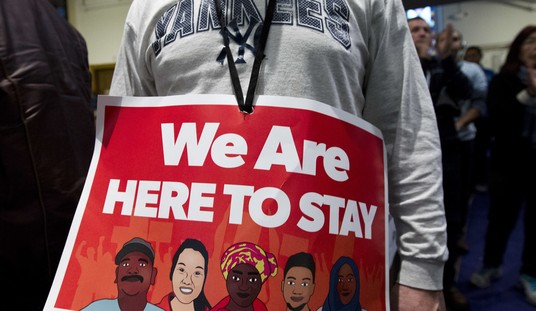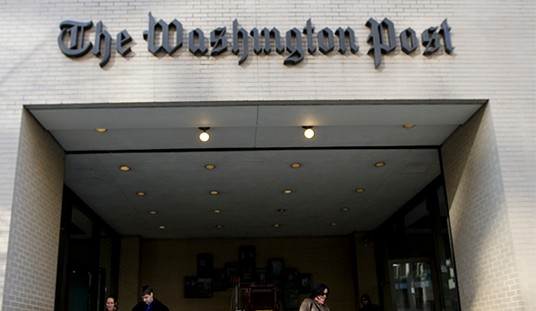
The Supreme Court convenes on Monday, October 2nd to begin their 2017 term. They had originally scheduled ten cases over five days in the October sitting. Technically, there are three cases at the end of October, but they are considered part of the November sitting. Most eyes will be on Neil Gorsuch, Trump’s first nominee to the Court, as this will be his first full term on the bench. The following is a brief summary of the cases to be heard in the October sitting.
Epic Systems vs. Lewis
- To be heard: Monday October 2nd
- Origin- Seventh Circuit Court of Appeals
- Consolidated with Ernst & Young vs. Morris and NLRB vs. Murphy Oil
This case involves employee/employer arbitration to resolve employment disputes. Specifically, it asks whether the Federal Arbitration Act waives class action and/or collective actions which may implicate the National Labor Relations Act.
Sessions vs. Dimaya
- To be heard: Monday October 2nd
- Origin: Ninth Circuit Court of Appeals
This is one of several immigration cases the Court will be confronted with this term, a hot button issue. Last term, the Court determined that the phrase “violent felony” was unconstitionally vague. Dimaya was convicted for first degree burglary and ordered to be deported by the government. Because it was his third conviction for a crime, it was considered a “crime of violence” under the California Penal Code. The 9th Circuit determined that the phrase “crime of violence” was likewise vague and overturned the deportation order.
Gill vs. Whitford
- To be heard: Tuesday October 3rd
- Origin: District Court for Western Wisconsin
- Justice to watch: Anthony Kennedy
This is a very important case involving reapportionment of districts at the state and federal levels. It wades into an area that the Court has traditionally avoided- partisan gerrymandering. The District Court determined that partisan gerrymandering had taken place and struck down Wisconsin’s redistricting plan in that they engaged in two practices to dilute the effect of Democratic voters. Cracking is the practice of dividing a party’s supporters among several districts while packing places an overabundance of a party’s supporters in a single district.
What makes this case interesting is that ever since the Court decided “one person/one vote,” they have consistently left it to the state legislative process, except in cases that involved the Voting Rights Act of 1965. In 2004, the Court decided that partisan gerrymandering cases were not the purview of the Court because no objective standards existed. In the present case, the respondents are arguing that a standard now exists known as “wasted votes.” A large enough discrepancy is an indication of a gerrymander of a partisan nature.
Democrats have consistently complained that GOP gains at the state and federal level are the result of gerrymandering. This case will be very closely watched and if the Court adopts the wasted vote standard, it could lead to litigation elsewhere and potentially alter the political landscape.
Jennings vs. Rodriguez
- To be heard: Tuesday October 3rd
- Origin: Ninth Circuit Court of Appeals
- Justice to watch: Neil Gorsuch
This is a holdover case from last term argued before Gorsuch took the bench which apparently ended in a 4-4 deadlock. Upon assuming office, the Trump administration ended the practice known as “catch and release.” This is actually a class action. Rodriguez is a legal permanent resident convicted of drug charges and later ordered deported to his native Phillipines. The case also involves an Ethiopian asylum seeker who the DHS alleges has ties to Somali terrorists.
The question is whether people can be detained without a bond hearing pending disposition of their deportation hearing. In the case of Rodriguez, he was held for three years before the Ninth Circuit ruled that those held must be afforded a bond hearing every six months. Obviously, this is an important case to watch as it applies to Trump’s immigration policies.
District of Columbia vs. Wesby
- To be heard: Wednesday October 4th
- Origin: Circuit Court for the District of Columbia
A person invited friends to a party at a vacant home supposedly as a prelude to one moving in as a renter. There were about 20 party-goers when the police arrived responding to a neighbor’s complaint. Upon investigation, it was determined that no rental agreement had been signed and the property owner did not authorize entry. All the party-goers were then arrested for trespass and disorderly conduct. The lower court determined that the police lacked probable cause to make the arrests since they were invited by a host, who was not present at the time. The courts also ruled that the supervising sergeant was liable because he directed his officers to make the arrests.
This is a bizarre Fourth Amendment case where some innocent party-goers may have been caught up in a bad decision by the non-present host of the party. Under the circumstances and the property owner’s statement that they did not approve entry onto the property, this also a case involving property rights.
Class vs. United States
- To be heard: Wednesday October 4th
- Origin: Circuit Court for the District of Columbia
Rodney Class was arrested for possession of firearms on the grounds of the Capitol. Representing himself, he entered a guilty plea. He later appealed his guilty plea on Constitutional and statutory grounds. The courts rejected the appeal noting that guilty pleas intelligently entered and of free will negated any further appeal, even for potential constitutional errors.
Hamer vs. Neighborhood Housing Services of Chicago
- To be heard: Tuesday October 10th
- Origin: Seventh Circuit Court of Appeals
A complicated case of appeals court jurisdiction and interpretation of the Federal Rules of Appellate Procedure. It was most likely taken to resolve a difference of opinion between different appeals court circuits.
National Association of Manufacturers vs. Department of Defense
- To be heard: Wednesday October 11th
- Origin: Sixth Circuit Court of Appeals
This is another jurisdictional case and whether the Clean Water Act’s judicial review provisions apply to challenges other than the issuance or denial of a permit. Instead, several plaintiffs are challenging the EPA and Army Corps of Engineers over a rule issued in 2015 that broadly expanded the definition of “waters of the United States.” In effect, the rule broadly expanded the scope of waters regulated by these agencies. The lower courts determined that deference to the agencies should be the overriding concern considering that Congress has not amended the Clean Water Act to remove any ambiguities.
Jesner vs. Arab Bank
- To be heard: Wednesday October 11th
- Origin: Second Circuit Court of Appeals
Since 1980, the Alien Tort Statute has been used to bring civil suit against people and corporations who committed acts of terrorism and human rights violations abroad. The statute has its origins in 1789 as part of the Judiciary Act. This case involves victims of terrorist attacks in Israel, Gaza and the West Bank between 1995 and 2005. The Arab Bank, based in Jordan, now has branches throughout the world, including the US.
The Court previously ruled that US courts have no jurisdiction over acts that occur in other countries except under a very strict set of circumstances. In a 2004 case, when presented with whether corporations are liable under those circumstances, the Court sidestepped the issue. That issue is now squarely before the Court. The alleged action by the Bank is that they are a conduit through which the Palestinian Authority makes so-called “martyr payments” to the families of suicide bombers.














Join the conversation as a VIP Member